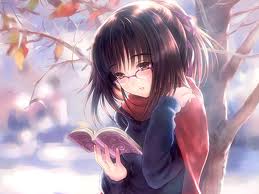The Real Reason Writers Need To Read

There’s a specific skill you gain from reading widely — not just the stuff you like — that is an essential tool to becoming a better writer.
Critiquers, beta readers, editors, they read your WIP and offer you advice and opinion and maybe even suggest solutions. But how do you know if they’re right?
And what about when different people offer you conflicting advice? Who’s right then?
What’s to say they’re not all talking a big pile of poo?
Chances are they aren’t a best-selling author, and even if they are, what works for them may not be right for you.
It's not that hard to sort out.
You will already have experienced an occasion when someone has suggested a critical opinion on your story, and inside your head you’ve gone... Ah, of course. Or a No way! Either of these responses are helpful.
Problem is, this might not happen very often. Usually all you get is... Hmm, maybe.
What you want is an increase in the occasions when you instantly know an idea is going to improve your story or not.
That would be helpful, right?
Only, the problem isn’t with the quality of the suggestion. It’s with you ability to appreciate what making that change will mean.
Any change, even a small one, will have ramifications for the whole story, but you won’t be able to gauge the usefulness of those changes if you can’t tell what they’re going to be. And the idea of writing it all up to see if it maybe works is a big risk to take.
If you’ve read broadly enough, when someone suggests a problem with your story, your brain will cross-reference it with all the stories in your head (without you being aware of it) and you will know what the reader means and what the implications are for your story.
Instantly.
It’s not an exact science, but you’ll have a pretty good idea. Good enough to make a call on whether it’s going to be worth pursuing.
And the more you read, the more genres and styles you open yourself up to, the easier it gets. Even reading books you don’t enjoy will still aid the growth of this ability. Reading the exact same sort of book over and over will not.

If you found this post interesting, please give it a retweet. Cheers.